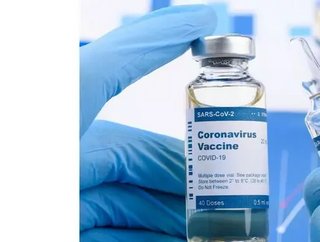Supply Chain to Deliver 9 Million COVID-19 Vaccines Daily

Many within the supply chain industry are marking 2021 as the year of cold chain logistics as the worldwide freight industry is gearing up for an initial goal of transporting an average of 271 million ultra-cold and cold doses per month (9 million doses per day). Early modelling by global tech market advisory firm ABI Research shows that there will be at least 857 temperature-controlled trucks leaving Pfizer and Moderna manufacturing facilities or distribution centres each month.
Should AstraZeneca also receive approval, these numbers will be materially increased. Distribution and delivery will continue to grow and get more complicated after the large urban and suburban areas are covered.
In its new White Paper, 68 Technology Trends That Will Shape 2021, ABI Research’s analysts identify 37 trends that will shape the technology market and 31 others that, although attracting huge amounts of speculation and commentary, are less likely to move the needle over the next twelve months.
- The world’s first COVID-19 vaccination was given to Margaret Keenan, 90, in England on Tuesday 8th December.
- At least 857 temperature-controlled trucks will leave Pfizer and Moderna manufacturing facilities each month.
- For everyone in the European Union to be vaccinated, it would take 1.5 billion doses.
Future Predictions
Stuart Carlaw, Chief Research Officer at ABI Research, said: “For success in 2021, especially after a very challenging 2020, one must understand fundamental trends early, and take a view on those trends that are buoyed by hyperbole and those that are sure to be uncomfortable realities. Now is the time to double down on the right technology investment.”
Most vaccine jabs require ultra-low temperatures, as much as -70 degrees Celsius. This is impacted by a lack of adequate storage capacity for these new types of mRNA vaccines. The containers to store and transport them are not widely available and not required for common vaccines. Constant temperature control is needed from the manufacturing site to the inoculation sites. According to known criteria from the likes of Pfizer/BioNTech, people will require two vaccines from the same manufacturer within 21-28 days. That equates to at least 662 million doses in the United States and approximately 1.5 billion across the European Union.
Complex challenge
Susan Beardslee, Freight Transportation and Logistics Principal Analyst at ABI Research, said: “Much of the focus, to date, has been on fulfilment centres and modal capacity for air. Another concern is the need to seamlessly track temperatures and provide alerts for any out-of-spec loads. This involves integrated software, sufficient compute and sensor capabilities throughout, and the cooperation of both public and private entities across multiple modes and likely competitors. The scale of technology, strategy, and operations excellence needed will require transparency, flexibility, and scale never seen, and will take herculean efforts beyond the actual vaccine development and approval.”
ABI Research's global team of analysts publish groundbreaking studies often years ahead of other technology advisory firms. To read their latest White Paper, visit https://www.abiresearch.com/.






